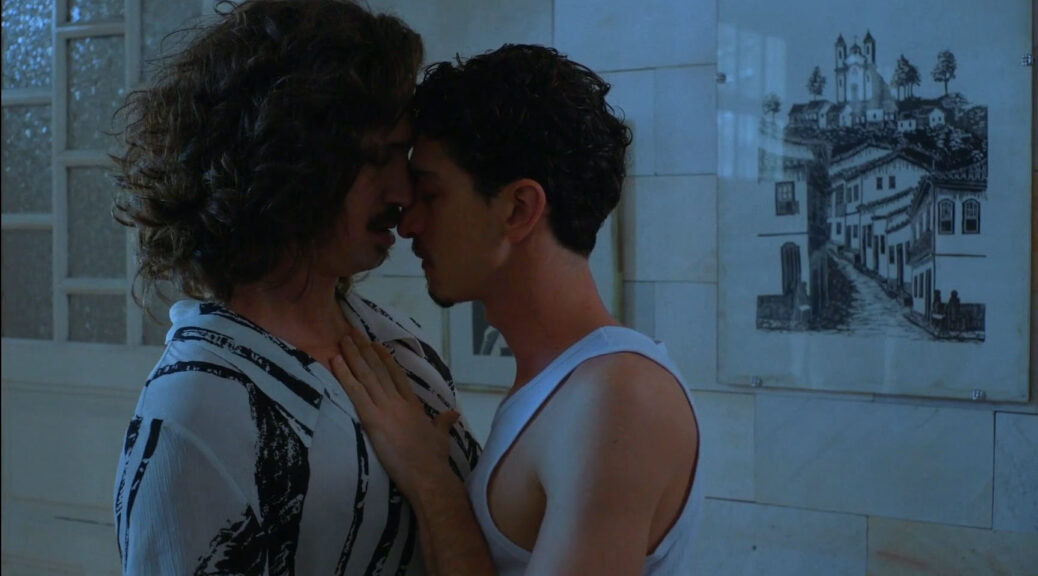The First Fallen
by Rachel Willis
Writer/director Rodrigo de Oliveira shapes a not-so-subtle soldier metaphor for the first victims of the AIDS crisis in his film, The First Fallen.
The film follows biologist Suzano (Johnny Massaro), and his band of friends and family as he navigates the frontlines of a war waged within his body.
The first half of the film is less engaging than the more personal second half. Though we meet several characters over the course of the first hour or so, no one really has much depth – that comes later. Suzano has been away in Paris but has returned to his sister Muriel (Clara Choveaux) and her son Muriel (Alex Bonin) to reconnect. His friend Rose (a transcendent Renata Carvalho) has not only been turned away from the hospital where she seeks care, but they have misgendered her – the indignities of which lend the film its most powerful scene.
Most of the first act is concentrated around boisterous NYE celebrations, ringing in the year 1983. Rose performs for the celebrants at a gay club; Maura and Muriel attend a party. Suzano spends his evening alone.
There is a downheartedness that follows both Suzano and Rose, but it isn’t until the end of the first half that we get confirmation of what causes their sorrow.
A sarcoma on Suzano’s neck is our first hint that several of these characters have fallen victim to the devastating AIDS epidemic. De Oliveira doesn’t spend time catching up those who might not know the history of AIDS and its startling explosion onto the scene in the early 80s, particularly in the gay community. At the time of the film’s events, the medical world didn’t even know the cause of AIDS (HIV would be identified in May of 1983), let alone how to treat it.
Seeking to document how the disease ravages his body, Suzano isolates himself, along with Rose and another afflicted man, Humberto (Victor Camilo). This is where the film excels. We’re privy to an experience not many have witnessed, particularly at a time when fear of the unknown isolated those who suffered most. How Rose, Humberto, and Suzano deal with their illness is at times touching and other times heartbreaking. The film’s home video approach lends authenticity to the experience.
The soldier metaphor is apt. For the first victims of the AIDS epidemic, many became numbers, dehumanized to understand what plagued them. De Oliveria wants us to remember those who fell.

